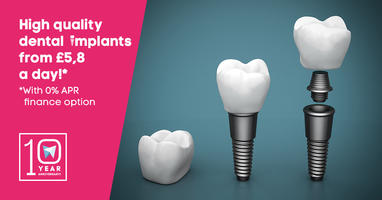A checkup every six months, together with a rigorous at home oral care routine can keep the dentist at bay for more or less the rest of your life. While most patients can claim to follow the second of these edicts, the number of patients that follows the first one is abysmally low. The reason for this is of course two fold: patients are afraid of the monetary end of things, but they also feel a certain amount of anxiety regarding the treatment itself. Dentophobia is a condition in which you are afraid of dentists and things associated with dentistry just make you cringe: the sound of drills, the smell of ozone, or just the sensation of someone rooting around in the mouth may be too much to handle for some patients.
Causes
As with most phobias, searching for a definitive cause is kind of futile. There may be many causes, or there may be none that the patient is conscious of; most phobias stem from unresolved issues that are buried deep in the subconscious mind. If the patient is mindful of the causes than it is easier to deal with the problem of dentophobia and to find solutions to it. When causes are apparent, then they usually show themselves to be a case of mistreatment, or a particularly heavy treatment that had a traumatic effect because of pain, or the sight of blood, or a particularly difficult healing time. A negative experience with dentistry can cause the patient to become anxious and even develop a phobia and thus not want to go anywhere near a dentist’s office, even if problems are becoming apparent. There needs to be some kind of stimulus to bring the patient out of their shell and into the chair.

Diagnosis
The single most important thing is for the patient to realize that yes, there is a problem. The problem needs to be diagnosed in order to start the healing process, and to start going down the road that will end in the dentist’s chair again. The human mind is capable of deception to a baffling extent, and many times patients just do not think there is a problem; they feel anxious, and immediately associate it with something else, or come up with clever tricks or lies to deceive themselves into thinking that there is no problem really. The patient needs to see that there is a problem, and that this problem needs to be dealt with, in other words, the patient needs to accept their fears, and that they do in fact have them. This is especially hard for male patients, as fear is seen as something unmanly. The patient should understand that this is something that can develop and that they are not alone with this problem, and that this problem does not define them.
Preparation
After the patient has realized that there is a problem, it is time to face fears and get back in the chair. This means booking an appointment (or possibly more, as patients frequently do not show up to their checkups when dealing with phobia), and going to it. There are many mental exercises that you can do that can help prepare you for your meeting with the dentist. The first is to imagine the worst case scenario that can happen. This will usually calm people down, and will help rationalize the fears and anxieties that people have. It is also good to have some kind of reward or condition that can only be met if the patient goes to the dentist. This can really help fight anxiety. But the most important thing is to find a proper dentist who you feel comfortable with, and one who is professionally competent and compassionate. With these qualities, the anxiety wilél fade to nothing, and remain nothing more than a bad memory.
Image: 1.

